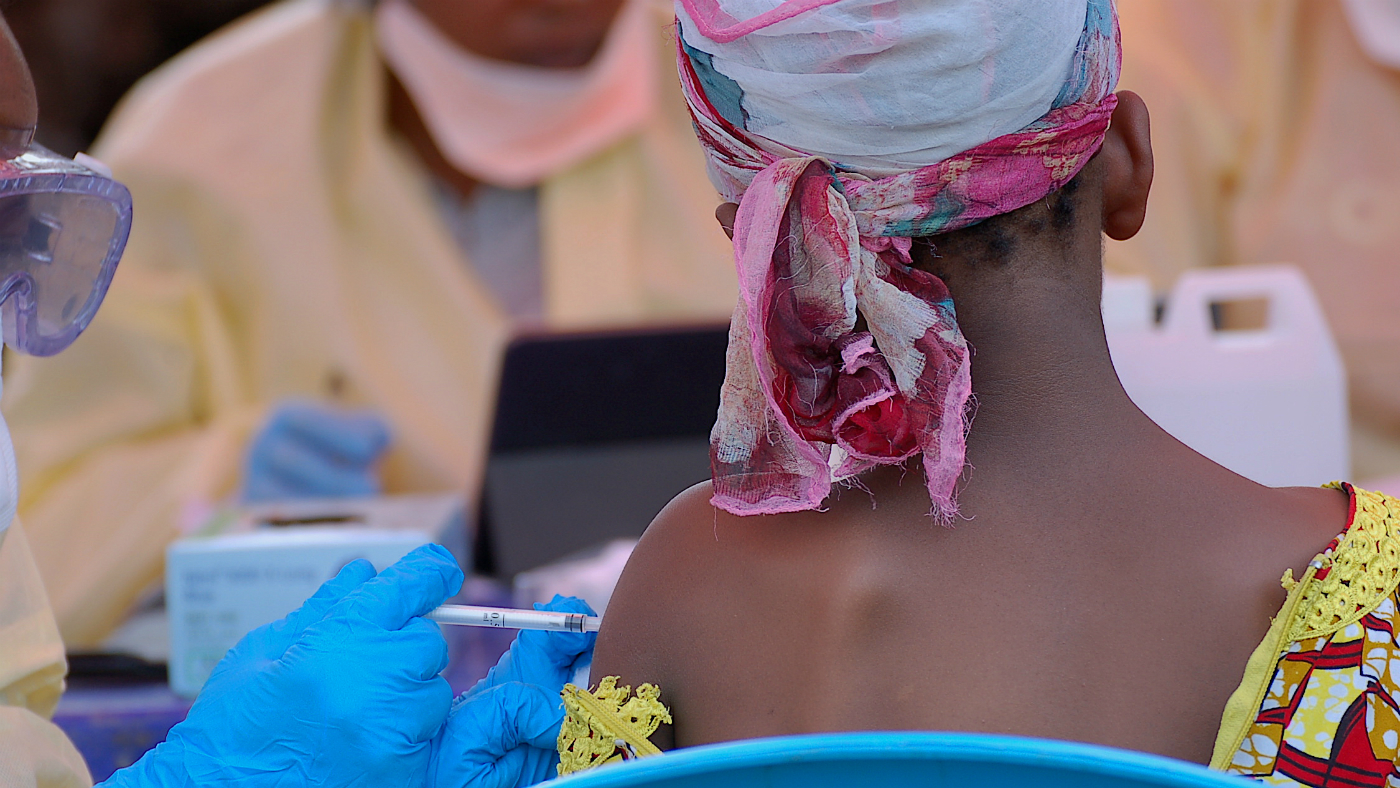Who are Ebola’s ‘lullaby singers’?
Grieving mothers and orphaned babies lend each other mutual comfort

A free daily email with the biggest news stories of the day – and the best features from TheWeek.com
You are now subscribed
Your newsletter sign-up was successful
The latest Ebola outbreak has seen grieving mothers and orphaned babies come together in a mutual soothing of the pain the disease spreads.
Known as the “lullaby singers”, groups of women who have lost their children to Ebola are caring for orphaned and sick babies at treatment centres in the Democratic Republic of Congo.
As soon as a child tests positive for the disease, they are placed in hermetically sealed bio-secure units. “As they teeter between life and death,” says The Daily Telegraph, “almost the only physical contact they have with the outside world is with doctors clad head to toe in decontamination suits.”
The Week
Escape your echo chamber. Get the facts behind the news, plus analysis from multiple perspectives.

Sign up for The Week's Free Newsletters
From our morning news briefing to a weekly Good News Newsletter, get the best of The Week delivered directly to your inbox.
From our morning news briefing to a weekly Good News Newsletter, get the best of The Week delivered directly to your inbox.
The only exception is the lullaby singers. All of the mothers are Ebola survivors, so have antibodies in their system that protects them against re-infection.
The Times tells the story of Joniste Kahambu, a lullaby mother who, after losing her baby, returned to the treatment centre where she overcame Ebola.
“If I had to stay home I’d think too much about my son,” Joniste told the paper. “Many babies have lost their mothers and need our love. Caring for them is my way of helping the people who looked after me.”
All of the women caring for the babies have lost children to Ebola – some of them more than one.
A free daily email with the biggest news stories of the day – and the best features from TheWeek.com
Gentile Kahunia, 40, former teacher and now lullaby singer, lost two of her children to the disease in March. She told the Times: “I feel relieved and can forget a little about the death of my children when I take care of the ones here.
“I treat them like they are my own.”
As survivors, the lullaby mothers can be dealing with the unpleasant side effects of the disease even after their recovery. After-effects include tiredness, muscle aches, eye and vision problems and stomach pain, according to the US Department of Health and Human Services.
There is also significant social stigma attached to survivors.
“When I came back home my husband and family were so afraid of me that they would not touch objects I touched,” said Gentile. “All the children in my classroom were so afraid of me that I ended up giving up work.”
Over 3,500 children have been orphaned or separated from their parents by the current outbreak, which last week spread to a third DRC province, South Kivu, reports The Times.
The highly contagious disease has claimed more than 1,900 lives in the past year.
However, there is some good news. Scientists have recently trialled a drug that dramatically reduces mortality in Ebola patients. Untreated sufferers have a 75% chance of death, but this plummets to 29% when treated with the new drug. If treated soon after falling ill, the chance of death falls further to just 6%.
Edouard Beigbeder, Unicef representative in the DRC, said that lullaby mothers had become a lifeline for the Ebola orphans: ��The touch of these women provides them with essential human interaction and a glimmer of hope.
“Their selflessness, kindness and bravery is immeasurable.”